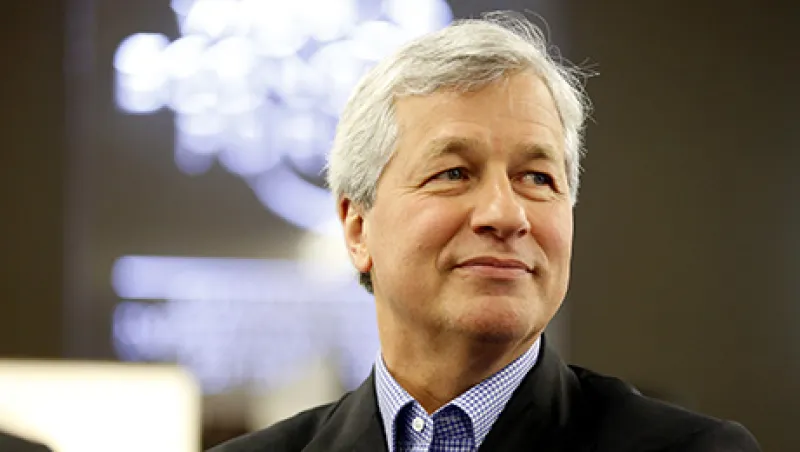
FILE PHOTO: James "Jamie" Dimon, chief executive officer of JPMorgan Chase & Co., pauses during a break in sessions on the opening day of the World Economic Forum (WEF) in Davos, Switzerland, on Wednesday, Jan. 22, 2014. World leaders, influential executives, bankers and policy makers attend the 44th annual meeting of the World Economic Forum in Davos, the five day event runs from Jan. 22-25. Photographer: Jason Alden/Bloomberg *** Local Caption *** James Dimon
Jason Alden/Bloomberg

